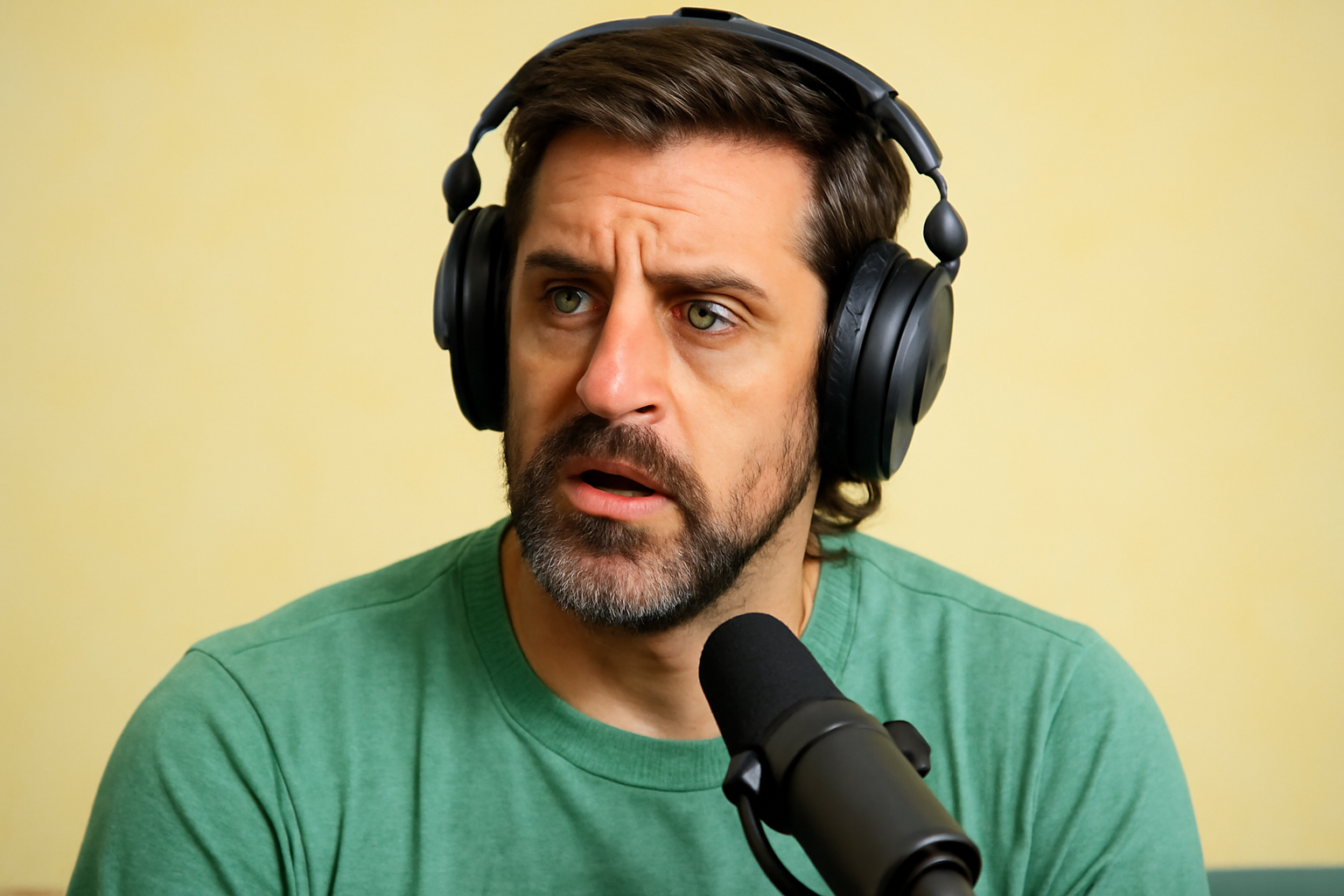
NFL quarterback Aaron Rodgers has sparked controversy by expressing his views on transgender inclusion in sports, arguing that transgender women in sports are "anti-women." Rodgers made these comments during an interview on a right-wing podcast hosted by Joe Rogan.
Rodgers, who has played for teams such as the Green Bay Packers and New York Jets, stated: "The trans-women movement is actually anti-woman, 100 percent." He clarified that his comments were specifically about the participation of trans women in sports competitions.
"You're not seeing trans men dominating anything," Rodgers continued. "No, because there's a biological difference." This statement was met with agreement from Rogan, who added: "The idea that that's bigoted is so crazy when there's a demonstrable effect like you can clearly see that these people that are identifying as women but are actually biological males have massive advantage."
Debate on Trans Inclusion in Sports
Trans inclusion in sports has been a contentious issue, especially in the United States, where there have been broader efforts to reduce the rights of transgender individuals. Despite studies indicating that trans women athletes do not have an inherent advantage in elite sports, the debate continues to polarize opinion.
Earlier this year, former President Trump signed an executive order that banned trans women and girls from participating in female sports. This executive action was part of a series of orders aiming to enforce the notion that there are only two sexes, limit transgender people's ability to serve in the military, and restrict gender-affirming healthcare for transgender youths under 19. Additionally, the administration sought to eliminate diversity, equity, and inclusion programs across various government sectors.
The order, titled "Keeping Men Out of Women's Sports," declared that allowing men to compete in women's sports is "demeaning, unfair, and dangerous to women and girls" and denies them equal opportunities in competitive sports. It asserted that the official policy of the United States would be to oppose male participation in women's sports across the board, citing safety, fairness, dignity, and truth as reasons.
An example of the tensions surrounding this issue occurred in Atlanta, Georgia, during the NCAA Swimming and Diving Championships. Counter-protesters gathered in support of Lia Thomas, a transgender swimmer, highlighting the ongoing debate and division.
NCAA's Response and Policy Changes
The NCAA, which oversees college athletics in the United States, responded swiftly to these developments by implementing policies restricting female competition to individuals assigned female at birth. According to the new policy, a student-athlete assigned male at birth, such as trans women and non-binary individuals, may not compete on NCAA women's teams. However, they are allowed to practice with these teams and receive all other student-athlete benefits.
Conversely, a student-athlete assigned female at birth who begins hormone therapy, like a trans man taking testosterone, is prohibited from competing on women's teams. If they do, the team becomes ineligible for NCAA women's championships and is instead subject to rules applicable to mixed teams. Despite these restrictions, they can continue practicing with the women's team and receiving benefits.
For years, the NCAA has faced criticism from conservative groups and anti-trans advocates over its previous policies on transgender inclusion. The controversy intensified following Lia Thomas's historic win in the NCAA swimming championship in 2022, where she became the first transgender athlete to claim an NCAA swimming title by winning the 500-yard freestyle. Thomas also tied for fifth place in the 200-yard NCAA freestyle event.
Riley Gaines, a swimmer from the University of Kentucky who tied with Thomas, has since become a prominent figure in the anti-trans movement, advocating against the inclusion of trans women in female sports.
The discussion around transgender inclusion in sports remains a deeply divided topic, balancing between fairness, inclusion, and competitive equity. As policies continue to evolve, the conversation is likely to persist, reflecting broader societal debates on gender and identity.
Related Posts
Triumphant Trans Woman Wins Legal Battle and Inspires Others to Stand Up for Their Rights
Breaking new ground: a landmark victory in transgender rights After battling in courtrooms and enduring endless challenges, Diana Portillo, a transgender woman, has secured a monumental victory in her decade-long fight against workplace discrimination. The result? Nearly $1 million awarded in a historic settlement. But this isn't just a win on paper—it represents a powerful precedent in combati [...]
Pride Month in Latin America: Protests and Demands for Equality
**Celebrating Pride and advocating LGBTQ+ rights in Latin America** Pride Month in Latin America was a lively mix where celebration met activism. Communities united, not just throwing a party but making a stand—demanding equality and pushing governments toward better protection and rights recognition. Throughout Latin America, pride events erupted in marches and cultural displays, each with a c [...]
Transgender Erasure Actions Implemented by National Park Service
```html Trump administration's impact on national park service and transgender recognition The Trump administration made notable moves in undermining transgender representation, which included directing agencies like National Park Service not include "T" and "Q" when they refered “LGBTQ” in any official communication. This move seems part a broader plan by this administration aimed at reducin [...]